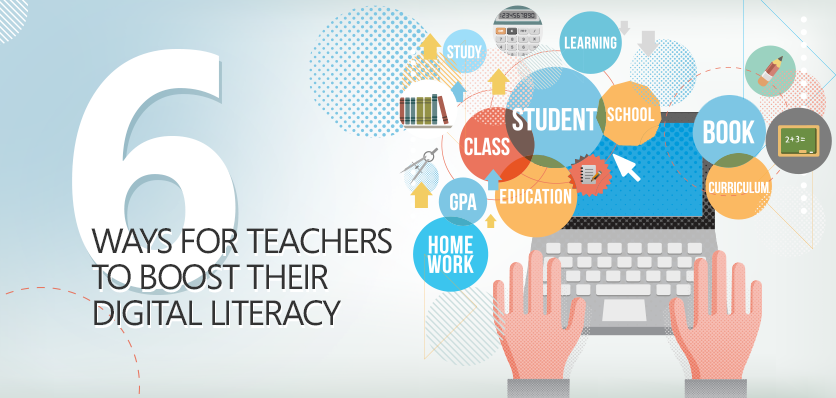
So if you’re a teacher, this is for you: six ways digital literacy can help…
Explore for yourself and with your students the opportunities that digital literacy brings. You don’t have to always be immediately ‘the expert’ – the process of learning and trialing can be shared and iterative.
Of course for this to work, you need an institution that supports and enables you to teach in this way. Lobby senior management for the time and freedom required. If that’s not too frequent or onerous, they should see the benefits: especially those related to taking students on a problem-solving journey.
Don’t be intimidated. Don’t stick to techniques and technologies in your comfort zone.
Some teachers might find making a podcast, for example, a challenge too far. In reality, most digital techniques are relatively straightforward, and most are supported by a host of ‘how to’ guides on YouTube and elsewhere.
You should see new frontiers in digital literacy as a challenge worth tackling – not just for the classroom, but for your own development.
Nothing’s worse than trying to use digital techniques and being let down by the technology. Students are likely to see the funny side, but you don’t want to feel the joke is ever on you.
Of course there are basic steps to take, such as always ensuring your kit is working in advance, that you’re familiar with it and that you have alternatives up your sleeve.
But why stop there? Why rely on IT to solve problems? You might find becoming more technically capable and informed a worthwhile life skill outside the classroom in any case, so consider taking an IT troubleshooting course, reading literature or practicing in your spare time.
Once you have technical know-how, it can be tempting to intervene with students to ensure a high-quality end product. Even if you know something can be done better, let students find out for themselves. This way they will learn in two senses: the content of the lesson, and the digital technique required.
In a similar way, think how digital and IT skills can extend across the curriculum and teacher/student relationship. Just as students practice writing both in specific language lessons and in all school subjects, couldn’t they practice digital literacy skills in every area, and every interaction you have with them – even if it’s as simple as a digital register?
Why not share information with parents using digital techniques? How about setting up digital exchanges amongst staff at your institution? Way not take the techniques and ideas you now know into other walks of your life, whether social, personal creativity or more?